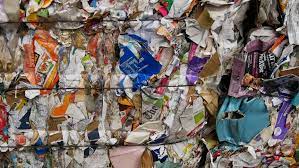
HDPE is a high-density Polyethylene (HDPE) is among the widely utilized plastics around the globe well-known for its strength, resistance to impact, and versatility. It is typically used in items such as detergent bottles, milk jugs, and piping. Due to the increasing environmental issues, recycling HDPE has become an essential procedure to handle plastic waste and conserve resources. Here’s everything you need know about recycle HDPE.
What is HDPE?
Recycle HDPE is a form of thermoplastic polymer that is made by petroleum. It is characterized by its high strength-to-density ratio, which makes it suitable for various applications. It’s flexible, resistant to environmental stress and can stand up to a wide temperature range. Its characteristics make it a popular option for products that need toughness and resistance to chemical.
How is HDPE Recycled?
Recycling HDPE involves a series of steps:
Collection and Sorting: Used HDPE products are taken from recycling bins and then sorted to get rid of non-HDPE objects and other contaminants. Sorting can be accomplished by hand or using advanced equipment.
Cleaning: The separated HDPE will be cleaned in order to eliminate any remaining residues, such as adhesives, labels, and leftover contents. This is vital to ensure the quality of the material recycled.
Shredding Clean HDPE is shredded into small pellets or flakes. This process makes it easier to handle and process later on.
Extrusion Shredded HDPE melts and is extruded into pellets or granules. These pellets can be used to create new HDPE products or mixed with other materials to make composite materials.
Manufacturing Recycling: Recycled HDPE pellets are used to produce new products. These include new containers, pipes and even things like furniture for the outdoors.
Benefits of Recycling HDPE
The environmental impact: Recycling HDPE helps reduce the amount of plastic waste that ends in oceans and landfills. Through recycling the material, we reduce the need to produce virgin plastic which reduces carbon emissions as well as preserving natural resources.
Resources Efficiency HDPE Recycling helps conserve petroleum resources, as it reduces the need for new raw materials. This not only helps in managing resources, but also reduces energy consumption during production.
Economic Advantages: Recycling creates job opportunities in the manufacturing and recycling sectors. Additionally, using recycled HDPE can be more cost-effective than making new plastic from the raw materials.
Challenges and Future Outlook
Despite its advantages Recycling HDPE faces challenges such as contamination, the requirement for proper sorting, as well as the fluctuation of markets to recycle materials. However, advancements in technology and increasing awareness about plastic waste are causing improvements in recycling processes.
Future of HDPE recycling is looking promising thanks to advances in sorting technology and chemical recycling techniques, and a growing emphasis on sustainability. By supporting recycling initiatives and reducing the use of plastic and reducing the use of plastic, we can help contribute to an eco-friendly and sustainable environmental footprint.